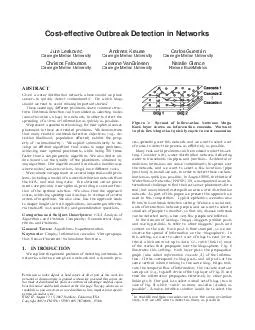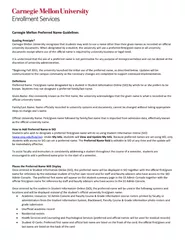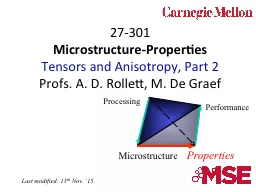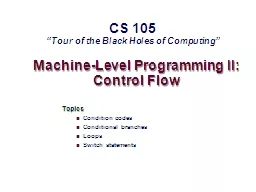PPT-Carnegie Mellon Machine-Level Programming II: Control
Author : phoebe-click | Published Date : 2018-11-21
15213 Introduction to Computer Systems 6 th Lecture Sept 13 2018 Today Control Condition codes Conditional branches Loops Switch Statements CPU Recall ISA AssemblyMachine
Presentation Embed Code
Download Presentation
Download Presentation The PPT/PDF document "Carnegie Mellon Machine-Level Programmin..." is the property of its rightful owner. Permission is granted to download and print the materials on this website for personal, non-commercial use only, and to display it on your personal computer provided you do not modify the materials and that you retain all copyright notices contained in the materials. By downloading content from our website, you accept the terms of this agreement.
Carnegie Mellon Machine-Level Programming II: Control: Transcript
Download Rules Of Document
"Carnegie Mellon Machine-Level Programming II: Control"The content belongs to its owner. You may download and print it for personal use, without modification, and keep all copyright notices. By downloading, you agree to these terms.
Related Documents














